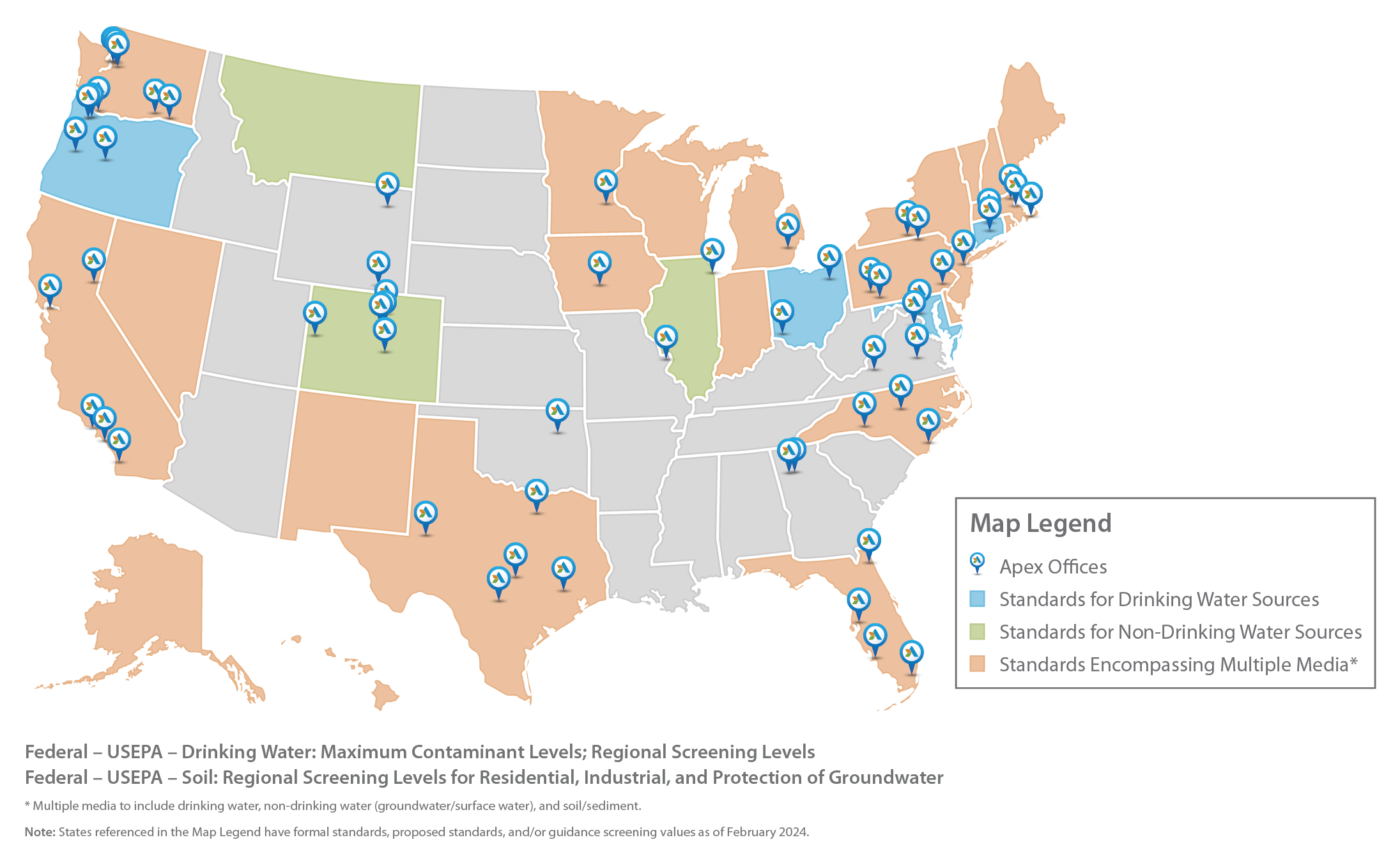PFAS Regulations & Your State
What is PFAS?
PFAS, also known as “forever chemicals” refers to a class of thousands of synthetic man-made substances that have been used in industry and consumer products worldwide since the 1940s. Due to their unique and extremely strong chemical bond, these compounds are resistant to heat, grease, water and oil. They have been used in non-stick cookware, food packaging, dental floss, pizza boxes, household cleaners, water-repellent clothing, cosmetics and firefighting foams.
Why are people talking about PFAS?
High levels of PFAS have been linked to numerous negative health effects over long exposure periods. Recently, the CDC published a study that found that PFAS could pose risks to human health at levels that are up to 10 times lower than what the EPA currently considers ‘safe.’
How are PFAS regulated?
The EPA has established a health advisory level, and to date, 23 states have already implemented their own requirements. The existing EPA guidance criteria are referenced below:
Drinking Water:
Maximum Contaminant Levels
Regional Screening Levels
Soil:
Regional Screening Levels for Residential, Industrial, and Protection of Groundwater
What are states doing?
North Carolina—a state with significant chemical manufacturing activity—is currently leading the charge with the introduction of seven bills to regulate PFAS compounds. But nearly half of the states have introduced requirements with many more following in their footsteps.

How is your state handling PFAS?
Unsure if your state is regulating PFAS or how to achieve compliance? Contact us to discuss the requirements where you are located.
Apex Associated Press (Apex AP) represents contributions from various authors within the Apex professional community.
Disclaimer
Please note that all content provided on this blog is for informational purposes only and does not necessarily represent the views, opinions, strategy, or methods of Apex Companies, LLC (Apex). Apex makes no representations as to the accuracy or completeness of any information on this site or found by following any link on this site. Apex will not be liable for any errors or omissions in this information nor for the availability of this information. Apex will not be liable for any losses, injuries, or damages from the display or use of this information. Apex reserves the right to edit or delete any comments submitted to this blog without notice to whoever wrote, submitted or posted the comment. Anyone who submits or posts any material to this blog waives any right or claim to privacy with respect to the content submitted or posted. By submitting or posting any content, the person or entity that does so is representing that they believe it to be accurate, have a legal right to the content, and have legal authority to submit or post it. Please do not submit or post anything if this is not the case. Please consider these requirements carefully when submitting or posting comments, photographs or other material relating to third parties who may have privacy, ownership or other rights implicated by the content. Readers are encouraged to seek professional legal, scientific, and/or engineering consultation concerning specific environmental, engineering, or other concerns. If you would like to contact Apex for more information regarding professional consultation to address your specific concerns, click here.
